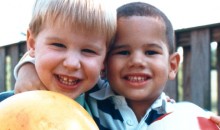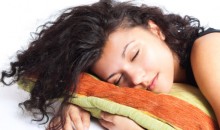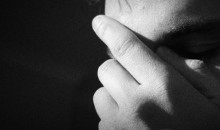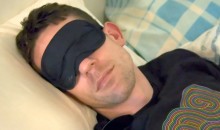Worrying, nervousness, uneasiness – these are all normal human responses and emotions to certain things or situations like work or family-related problems, making critical decisions, taking an exam, etc. Anxiety is a person’s natural reaction when in a seemingly dangerous situation; an automatic alarm activated when threatened.
While it is normal to get worried or scarwhen facing a stressful circumstance, it is no longer normal if that anxiety escalates to a level where it disrupts your usual activities and normal functions. If anxiety overwhelms a person that it restricts his ability to lead a normal and functioning life, it is approaching the bounds of anxiety disorder.
Anxiety disorder is a serious mental condition which occurs along with other related conditions which share a common major symptom – unrelenting or extreme fear or agonizing over situations where other people would normally not feel threatened or endangered.
Types of Common Anxiety Disorders
Anxiety can manifest in different forms and levels of fears or dread interfering with one’s performance of daily functions. According to DSM-5, the categorized types of anxiety disorders are:
Seperation Anxiety Disorder
It is usually seen in school aged children. The child experience recurrent excessive distress when he or shee need seperation from home or from major attachment figures.
Selective Mutism
Selective mutsim is usually seen in children as well. The child fails to speak in specific social situation although he or she can speak in other situations where she or he feels comfortable such as home.
Panic Disorder
This is characterized by recurring and unforeseen panic attacks without any warning. Panic attacks manifests with pounding heart, shorthness of breath, shaking, feeling of choking, chest pain, nausea, dizziness, chills, numbness, fear of ‘going crazy’, and fear of dying.
Agoraphobia
Agarophobic people have increased fear or anxiety in open spaces (parking lots, bridges, or marketplaces), in closed spaces (shops, theaters, cinemas), standing in line or being in a crowd, being outside of home alone or when they use public transportation.
Social Anxiety Disorder (Social Phobia)
This is the fear of being embarrassed in public or in front of people. It is also thought of as extreme introversion where social events or situations are avoided for fear of being judged or humiliated.
- Specific Phobia
This is anxiety manifested due to an exaggerated fear of specific situation or objects such as animals, natural environment (heights, storms, water), blood-injection-injury (needles, invasive medical procedures), situational (airplanes, elevators, enclosed places)
- Generalized Anxiety Disorder (GAD)
This is characterized by a persistent thought or feeling that something bad is about to happen for no apparent reason . People who suffer from GAD,find it difficult to control the worry. They complain of feeling restless,and keyed up,having concentration problems, fatigueness, irritability and sleep disturbance.
Substane/Medication-Induced Anxiety Disorder
Usage of some susbtances such as alcohol,caffeine, cannabis, PCP, hallucinogens, inhalants, opioids, sedative, hypnotics, stimulnats and cocaine present with severe anxiety.
Causes of Anxiety Disorders
 Like other mental condition, the exact cause of anxiety disorder cannot be pinpointed to a single reason or factor. Medical researches indicated that anxiety disorder may be caused by a combination of chemical imbalance in the brain and environmental factors like stress. There are studies that proved that severe stress for a long period can alter the chemical behavior in the brain which control mood or memory. Genetic link is also a factor that is believed to cause anxiety disorder. Additionally, traumatic events or situations can also trigger the disorder.
Like other mental condition, the exact cause of anxiety disorder cannot be pinpointed to a single reason or factor. Medical researches indicated that anxiety disorder may be caused by a combination of chemical imbalance in the brain and environmental factors like stress. There are studies that proved that severe stress for a long period can alter the chemical behavior in the brain which control mood or memory. Genetic link is also a factor that is believed to cause anxiety disorder. Additionally, traumatic events or situations can also trigger the disorder.
Anxiety disorder usually becomes evident in childhood. Some may have the symptoms worsening in adolescence and early adulthood. Statistics have shown that the disorder is more common in women than in men.
Treatment Options
Before starting the treatment, your physician need to rule out the medical causes. Hyperthyroidism, anemia, or heart problems such as mitral valve prolapse may manifest with typical anxiety symptoms. After ruling out the medical causes, one needs to seek help from mental health care provider.
Similar to other mental illnesses, the type of treatment for anxiety disorder will largely depend on the severity of the condition. It can be one or a combination of the following medication and non-drug treatment approach or options :
- Medication. Doctors or mental health specialists may prescribe drugs which can help reduce and control the symptoms of anxiety disorder. These drugs include antidepressants and anxiety-reducing drugs.
- Psychotherapy. This is a non-drug treatment which involves counselling or talk therapy aimed to help the patient understand, accept and deal with the disorder.
- Cognitive Behavioural Therapy (CBT) is a type of psychotherapy given by mental health specialists to help the patient recognize and accept the thought patterns and specific behaviour which contribute to bothering and burdensome emotions or feelings. The end result will have the patient’s willingness to alter the thought patterns in order to avoid the unpleasant feeling that go with those unreasonable thoughts.
- Exposure therapy is another type of psychotherapy which helps and convinces the patient to confront or face their fears in a safe and controlled structure . This may take repeated activities of exposure to the feared object, place or situation. It will end when the patient has shown significant though gradual sense of control over a certain situation. Realizing that confronting the fear does not cause any harm, the patient’s anxiety symptoms are expected to diminish in time.
- Relaxation exercises or techniques also help reduce anxiety attacks. Deep breathing, meditation, yoga exercises are some of the relaxation techniques a patient should resort to when they start to feel anxiety build up within them.
Helpful Tips to Avoid Anxiety:
Keep a healthy eating habit and schedule. Start with a good breakfast and continue with small frequent meals throughout the day. Having an empty stomach for a long time will cause your blood sugar level to drop which can result to feeling anxious.
- Avoid cigarette and alcohol. These can contribute to the feeling of anxiety.
- Avoid anxiety-causing food and beverages like chocolate, coffee or any caffeinated drinks, cola, tea and sports drinks.
- Have a regular exercise regimen. This will break down stress and relieves anxiety. A 30-minute aerobic exercise will be a good way to start your day.
- If taking herbal medicines, make sure your doctor is aware as some herbal medicines may have anxiety-causing ingredients or chemicals.
- Keep a good sleeping habit. Loss of sleep can aggravate fearful thoughts or feelings. 7 to 9 hours of quality sleep will keep your emotions stable.
It is critical for a person to seek medical attention at the earliest sign of anxiety symptoms. This will help prevent the disorder from worsening and advancing to other related mental illnesses or conditions. If the doctor rules out a medical reason for the symptoms, you may need to see a psychiatrist.











